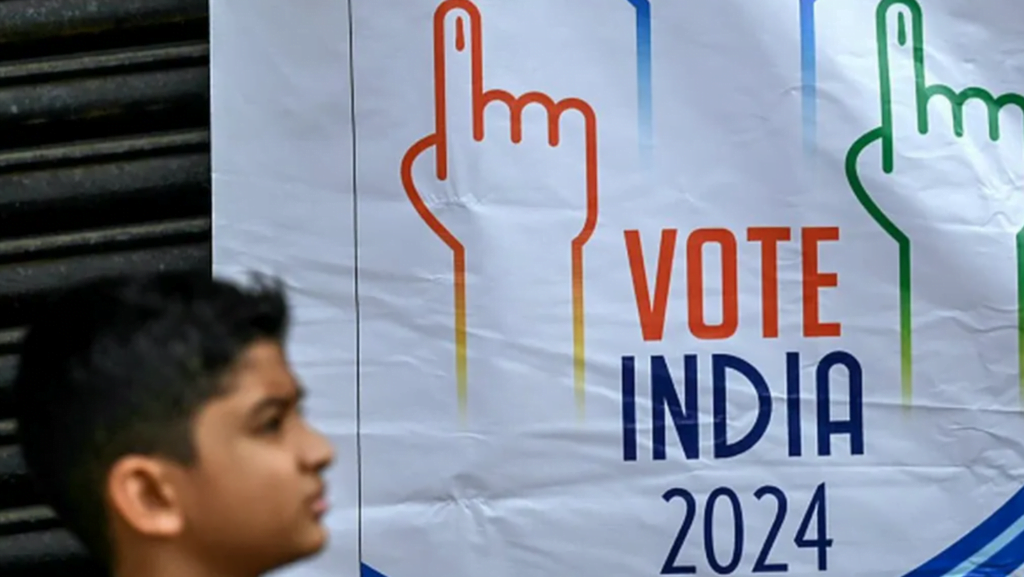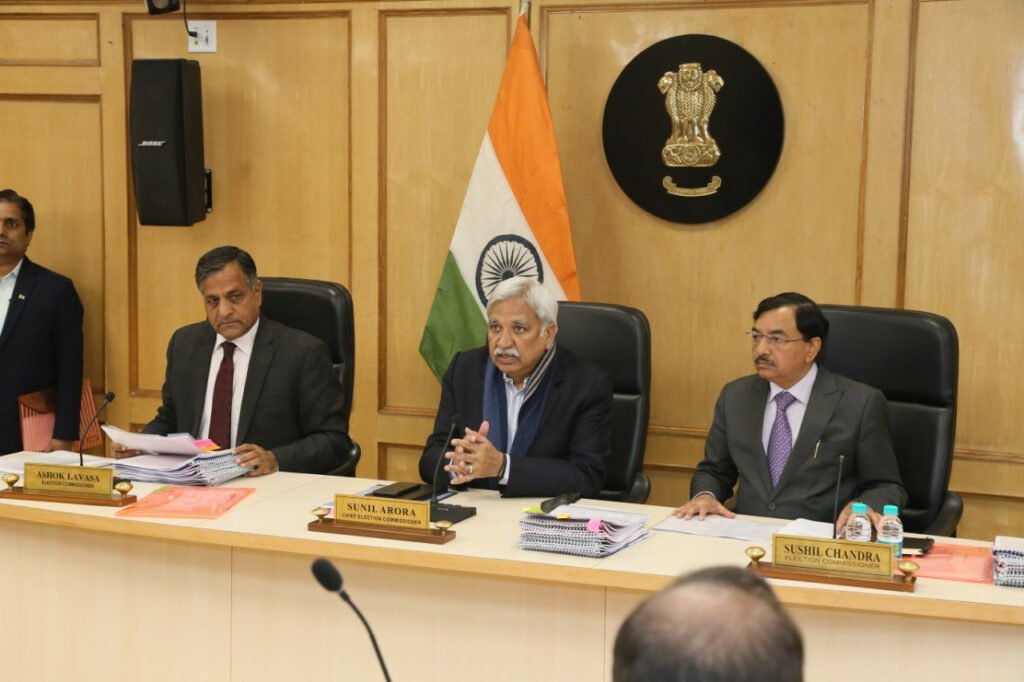The Election Commission of India (ECI) serves as a linchpin within the Indian democratic framework.
The Election Commission of India, formed on January 25th, 1950, is an independent body that oversees free and fair national elections as the guardian of the world’s largest democracy. It is responsible for organising the Lok Sabha election.
Beyond administering elections, the ECI serves as an impartial adjudicator, ensuring the election process’s integrity. It ensures that all political parties and candidates compete on an equal footing. This is accomplished by controlling campaign spending, checking for misuse of funds and influence, and enforcing the Model Code of Conduct. This code establishes ethical campaign principles to ensure a fair and civilised electoral environment.
The ECI is not afraid to take on difficult challenges. It is continually innovating to combat challenges such as voter apathy and electoral fraud. The use of Electronic Voting Machines (EVMs) was intended to promote transparency and reduce rigging. Voter ID cards have improved the system by preventing impersonation. The ECI also actively promotes voter education, urging citizens to participate in informed ways.
Constitutional appointment of ECI
From its foundation in 1950 to October 15, 1989, the election commission changed into a one-person body, with the Chief Election Commissioner (CEC) performing as the sole member.

On October 15, 1989, the vote-casting age was diminished from 21 to 18. To cope with the increased workload the President appointed election commissioners (ECs) due to the fact then, three election commissioners were selected to conduct free and truthful elections.
In 1990, the Election Commission reverted to its previous role. Later, in 1993, the Election Commission was reconfigured by appointing extra election commissioners, for a complete of three election commissioners in a multi-member body. The chief and two different election commissioners have the same authority and reimbursement as the best courtroom Judges.
The President of India appoints the leader Election Commissioner and two other commissioners. They have got tenure of 6 years to 65 years whichever is earlier. The leader Election Commissioner can be eliminated from office in like way and on like grounds as a decision of the ideally suited court.
What is Article 324?
The Constitution provides the Election Commission of India with the power of Direction, superintendence, and control of elections to parliament, state legislatures, and the office of the president of India.
The Election Commission is an all-India body that is common to both the Central government and the State governments. It must be noted here that the commission does not deal with the elections to the Municipalities and Panchayats in the states.
Election Commissioners and their responsibilities?
The Chief Election Commissioner of India is the chairman of the Election Commission and is empowered through the Indian Charter to hold free and fair elections and uphold transparency among the 2 parties (Between Voters and Political Parties).

The Indian constitution’s Article 324 defines the authority of an Election Commissioner. The general public of CEC contributors in India comes from the Indian Administrative carrier, which is a department of the Indian Civil Carrier. Disposing of a CEC specifically by the President is extremely hard since it requires the presentation and vote of two-thirds of the Lok Sabha and Rajya Sabha participants for disorderly conduct or imposition of unsuitable sports.
The authority to conduct elections carries with it several duties. The role involves creating electoral constituency obstacles, maintaining voter registration records, and distributing election timetables and dates. It involves handling popular political events and assigning representatives to handle disagreements on election planning. Guidelines are set for applicants from each party, and plans are developed to promote political celebrations on television and social media. The President provides recommendations on the disqualification of MLAs and MPs and requests specific election requirements from the president or governor.
Is ECI emerging as a menace to the people in the recent past?
In March 2023, the five people’s bench of Supreme Court judges issued an order designating the election commissioner for the impending general elections in 2024, who would be chosen by three committees, The Chief Justice, the Leader of the Opposition, and the Prime Minister to call for electoral openness.
Nonetheless, the Modi government introduced a new law in December 2023 that makes it very clear that “the chief justice of India (CJI) should not be the main focus,” and that the selection committee for choosing the CEC and ECs should be composed of two union secretaries who will shortlist five names. To choose CEC and ECs, the panel will consist of three people. Leaders of the opposition party, the Union minister, and the Prime Minister.
However, on March 9, 2024, Arun Goel, the Election Commissioner, resigned from his position. According to the CEC, Goel “had returned to Delhi because of health concerns.” Sources do, however, attest that “he was in his best condition.” Ideological disagreements with CEC Rajiv Kumar are thought to be the reason behind Mr. Goel’s departure. Two EC spots were available following Arun Goel’s departure.

The conflict started when the Prime Minister, the Union minister, and the leader of the opposition were picked to serve on the selection committee, which was established under the government’s new law. However, the committee once again failed to operate transparently throughout the process.
To summarise, The Election Commission of India (ECI) plays a crucial role in sustaining democratic governance norms by ensuring transparent, inclusive, and accessible elections. Its proactive initiatives to resolve electoral malpractices, encourage voter education, and utilise technology improvements demonstrate its commitment to strengthening democracy.
The ECI stands at the forefront of protecting democratic ideals in an ever-changing political context by constantly adjusting to new challenges and embracing innovation. In essence, the ECI serves as a light of democracy, ensuring the electoral process remains a pillar of democratic governance, demonstrating democracy’s potential to empower citizens and promote inclusive and responsible administration.
Source Link




















